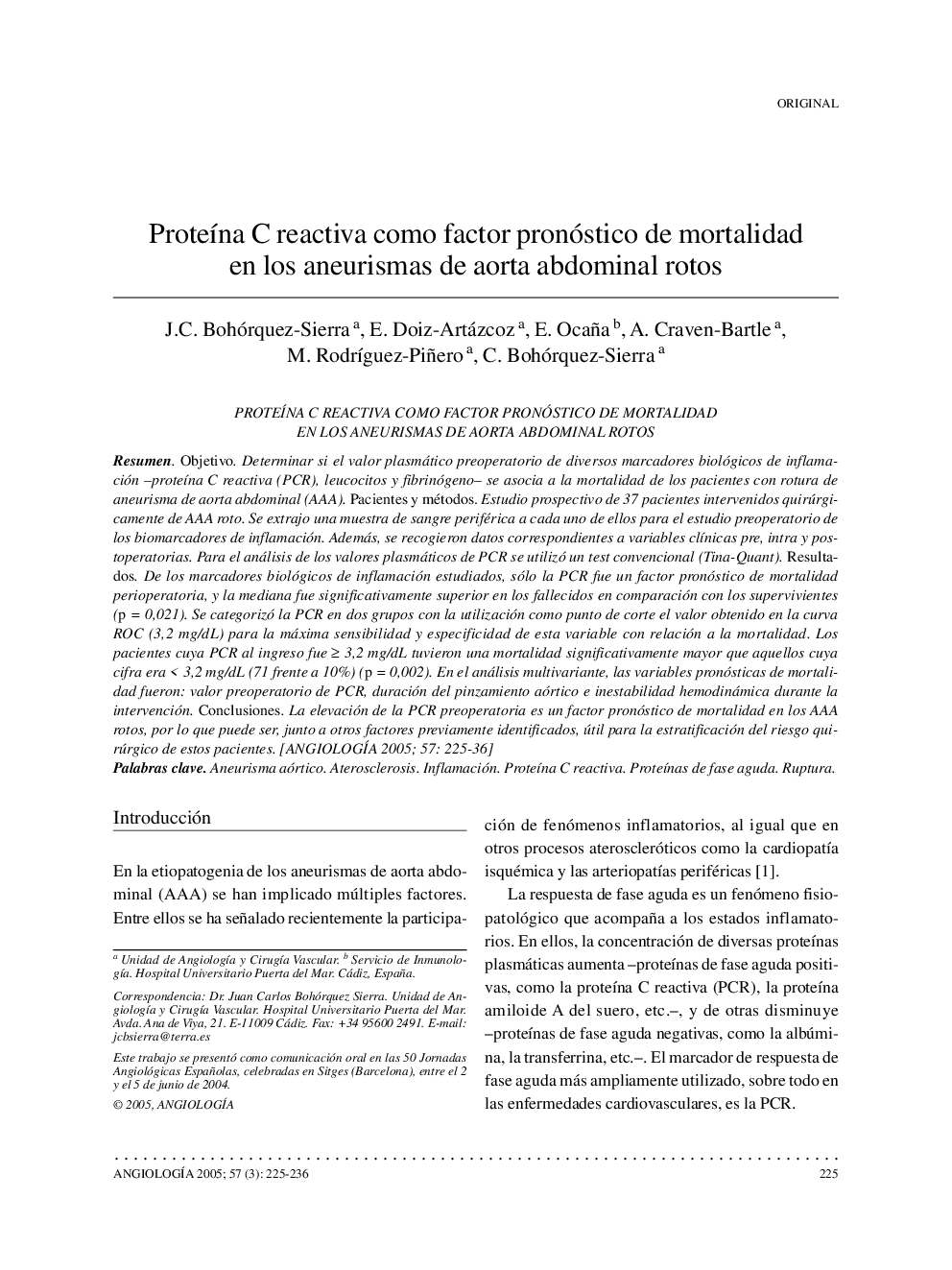| Article ID | Journal | Published Year | Pages | File Type |
|---|---|---|---|---|
| 9156832 | Angiología | 2005 | 12 Pages |
Abstract
Aim. To determine whether the preoperative plasma values of several biological markers of inflammation -C-reactive protein (CRP), leukocytes and fibrinogen- are linked with the mortality of patients with a ruptured abdominal aortic aneurysm (AAA). Patients and methods. We performed a prospective study of 37 patients who had undergone surgery to treat a ruptured AAA. A peripheral blood sample was taken from each of the patients for use in the preoperative study of biomarkers of inflammation. Additionally, data concerning pre, intra and postoperative clinical variables were also collected. A conventional (Tina-Quant) test was used to analyse the CRP values in plasma. Results. Of the biological markers of inflammation studied, only CRP was a prognostic factor for perioperative mortality, and the mean was significantly higher in those who died than in survivors (p = 0.021). CRP was categorised in two groups using a cut-off point taken as the value obtained from the ROC curve (3.2 mg/dL) for the maximum sensitivity and specificity of this variable in relation to mortality. Mortality among patients with a CRP on admission ⥠3.2 mg/dL was significantly higher than among those with a figure < 3.2 mg/dL (71 versus 10%) (p = 0.002). In the multivariate analysis, the prognostic variables for mortality were: preoperative CRP value, duration of aortic clamping and haemodynamic instability during the intervention. Conclusions. Elevation of preoperative CRP levels is a prognostic factor for mortality in ruptured AAA, which means that, together with other previously identified factors, it may be useful for the stratification of surgical risk in these patients. [ANGIOLOGÍA 2005; 57: 225-36]
Keywords
Related Topics
Health Sciences
Medicine and Dentistry
Cardiology and Cardiovascular Medicine
Authors
J.C. Bohórquez-Sierra, E. Doiz-Artázcoz, E. Ocaña, A. Craven-Bartle, M. RodrÃguez-Piñero, C. Bohórquez-Sierra,
